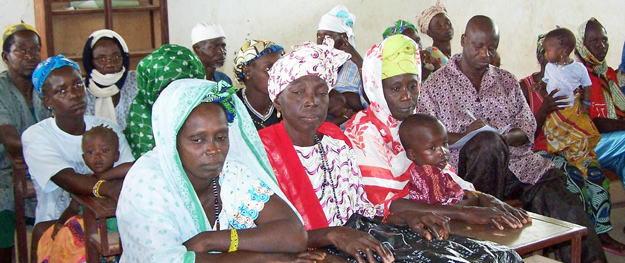
Community Development
Publication Date
1996
Abstract
Leaders can be effective educators to their peers inside and outside their community. As practitioners, they are in a position to draw on existing cultural knowledge and to discover new knowledge in developing innovative practices and techniques. But they learn best when they themselves are active learners and educators. Participation in community projects, formal training, and the exchange of resources and ideas will help them hone their skills as educators. The repeated cycles of reflection and practical experience characteristic of this action learning makes leaders well qualified to become trainers.
This module is an introduction to becoming an effective trainer/educator. It starts by exploring different beliefs and assumptions about teaching and learning. Then, styles of adult learning and methods of assessing their needs are addressed. Throughout the module, participatory methods and techniques are used to explore traditional and new ways of learning and assessing needs. By using the creative abilities of learners the primary responsibility for learning is given to participants. While individuals affirm their own learning and behavior. They also participate in cross-cultural learning shaped by collective group activities.
Book Series Title
The Learning CART (Communities Acting and Reflecting Together) Series Two: Leaders as Educators
Comments
This learning module, as well as others in the series, was made possible by the contributions and assistance of many individuals who were part of the Amherst CIRCLE core staff. From design to facilitation to writing, the workshop facilitators of each module kept in mind the spirit of participatory education for learners engaged in skill building and consciousness raising. Others involved in the design and production for the series tailored it to specific cultural contexts as well as to individual needs, learning styles, and experiences.